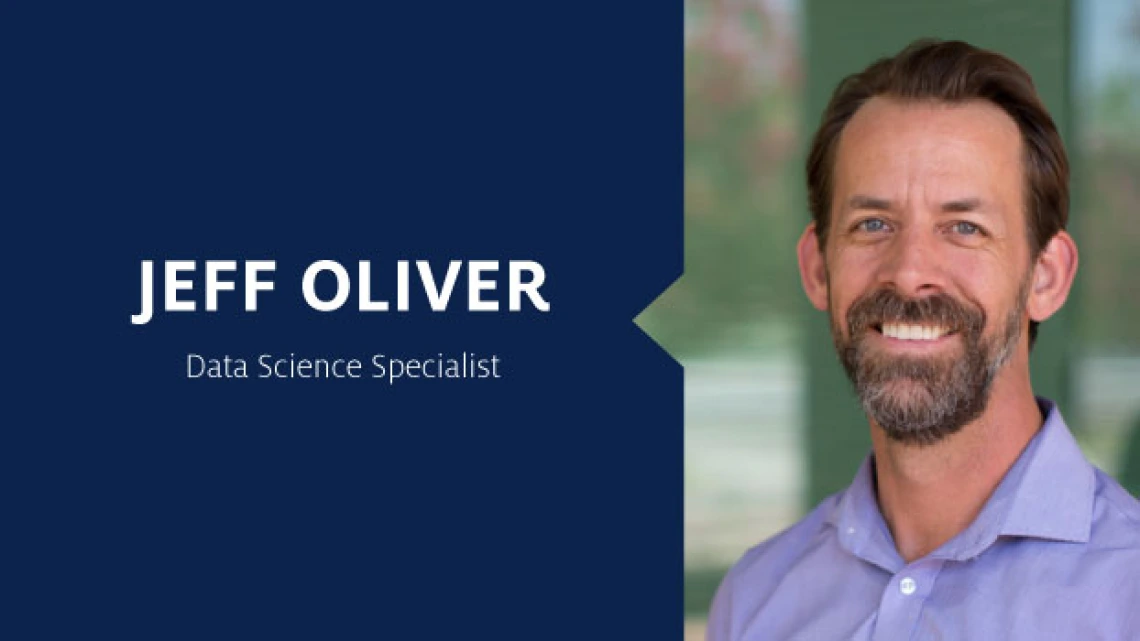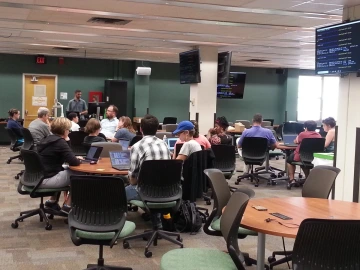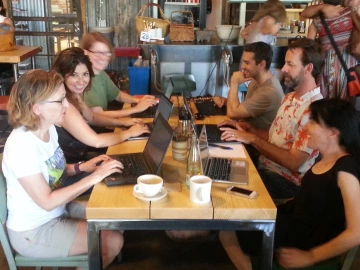Leveling up for the big data revolution

Jeff Oliver is our Data Science Specialist, fostering data and computational literacy across campus. As part of the Carpentries organization, he helps researchers and information professionals develop data skills. Jeff explains what Library Carpentry is and how it works.
What is Library Carpentry (and what does it have to do with data)?
In a world awash in data, librarians often find themselves sorting through thousands of records (or more!). Doing this by hand, or even with conventional spreadsheet programs, is infeasible. Library Carpentry workshops provide applicable, accessible training in a variety of software tools to help librarians work more efficiently.
These modular lessons use hands-on experiences to teach librarians how to:
- automate repetitive, boring, error-prone tasks
- create, maintain and analyze sustainable and reusable data
- work effectively with IT and systems colleagues
- better understand the use of software in research
"For librarians, by librarians"

All the materials for Library Carpentry workshops have been developed by community members in the library or information profession. That is, folks who know the challenge of working with library data but who may not have a lot of experience in computer programming. The workshop lessons include an introduction to how we think about data, the UNIX command line, and modern relational databases.
All Library Carpentry lesson materials are freely available online and are frequently revised based on community feedback.
Building skills at University Libraries
We've run two Library Carpentry workshops here at the University Libraries, and they were both successes. The most recent two-day workshop had a total of 21 learners from nine departments - a couple of our colleagues from ASU even joined in! Following along the "by librarians" philosophy, the four lessons were taught by UAL personnel. Jen Nichols from our Office of Digital Innovation & Stewardship (ODIS) kicked off with a data discussion and "jargon busting" session, followed by an introduction to UNIX by Ben Hickson (formerly of ODIS). Niamh Wallace from our Research & Learning department presented on best data practices with spreadsheets, and another colleague from ODIS, Fernando Rios, closed out the workshop with hands-on work with the relational database tool SQLite.
Giving back

As I mentioned, the lesson materials are all community-contributed, and in the spring of 2018, the University Libraries participated in a hackathon to revise and update the Library Carpentry materials. Camping out at EXO Coffee, a team of six from the University Libraries worked on improving materials for data best practices, relational databases, and web scraping. In addition to improving Library Carpentry lessons, the hackathon provided an opportunity for many to get their first experience working with the powerful GitHub platform for sharing materials.
If you are interested in learning more about how the library is "leveling up" data and computational literacy, just ask or stop by during drop-in hours.
